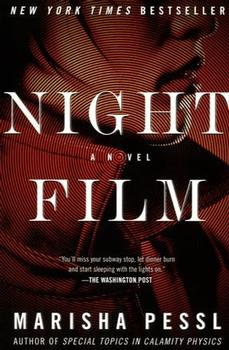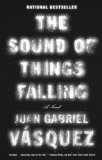Summary | Excerpt | Reviews | Beyond the book | Read-Alikes | Genres & Themes | Author Bio

All hail the independent publisher! In May 2014, Graywolf Press brought two of long-revered British writer Geoff Dyer's novels to an American audience: The Colour of Memory and The Search. Gorgeously packaged with cover art by illustrator Keith Negley, they have been eagerly welcomed by American Dyerphiles, a steadily growing group of which I am a longtime member.
Originally published in Britain in 1993, The Search should garner a strong American audience, having as it does all the makings of a good hardboiled detective story. We have the private eye with a sketchy past (in this case, our man Walker is a "tracker," a term used for people who find those who do not wish to be found); the beautiful, mysterious woman who has a job for him, yanking him back into the business he has tried to leave behind, and the cast of shadowy characters with nebulous intentions he meets along the way. All the tropes are there, right down to the strange man who produces a ten of spades from his pocket as a calling card, and pay phones ringing out into the dead of night.
But this is Geoff Dyer we're talking about, so now let's add two things to the template. The first is what have come to be recognized as Dyer's common denominators, the personal interests and obsessions that can be found in nearly all his work: travel by train, ship, bus and bicycle; the arcades, piazzas, and spired cathedrals of European cities; the tiny frustrations that make up daily life; the mutability and unreliable nature of memory. All present.
The second thing we must add is a genre-bending tack (Dyer is the king of defying categorization). In The Search, this manifests as an increasing sense of unreality that builds as Walker "tracks" his charge around what seems to be a fictional America, a bizarre landscape of places with names like Despond, Friendship, and Nemesis. I will give no spoilers, but here's a small sampler of what Walker can expect: a city with no people, a city in suspended animation, and a particularly enjoyable stay in a place named Juice Town, which I'll let you ponder the nature of. All together, you get what amounts to a Salvador Dali painting in novel form. That is, it gives the distinct impression of taking place in a world almost like this one, but somehow not quite.
Needless to say, the "plot" we end up with isn't anywhere or anything we could have imagined at its outset, but I won't elaborate for fear of spoiling the fun. I would however be remiss if I didn't mention the beauty of Dyer's writing. His spare, exacting descriptions always make me smile: "a spectrum-smeared puddle," "a cigarette-faced woman." There is an exquisite six-page description of what it feels like to lose one's resolve, and the respite - and ultimate grace - that's to be found in the surrender to inertia. And my favorite Dyerism, his ability to put into words the internal experience of living in the external world:
Stepping outside he looked up and saw the crane arm swinging round – though it took him several seconds to express in these terms for he experienced the movement of the crane as a sensation rather than a perception. In that burst of panic he felt the air reeling – centrifugal, sickening – as if the crane were stationary and the street spinning around it, like a fairground ride or a record on a turntable. Then the correct relationship of stability and motion re-established itself, with the crane arm sweeping above the street. He tried to re-evoke the earlier sensation but now reason was firmly entrenched again and would not be caught off balance by something it knew to be an illusion. The experience disconcerted him all the same. If things could be sent reeling so easily, if momentarily, it would take only a slightly more elaborate arrangement of effects to throw the world more radically out of kilter.
Delicious. Have I convinced you? Read this book.
![]() This review
first ran in the July 23, 2014
issue of BookBrowse Recommends.
This review
first ran in the July 23, 2014
issue of BookBrowse Recommends.

If you liked The Search, try these:

by Marisha Pessl
Published 2014
Brilliant, haunting, breathtakingly suspenseful, Night Film is a superb literary thriller by the New York Times bestselling author of the blockbuster debut Special Topics in Calamity Physics.

by Juan Gabriel Vásquez
Published 2014
Vásquez is "one of the most original new voices of Latin American literature," according to Nobel Prize winner Mario Vargas Llosa, and The Sound of Things Falling is his most personal, most contemporary novel to date, a masterpiece that takes his writing - and will take his literary star - even higher
Your guide toexceptional books
BookBrowse seeks out and recommends the best in contemporary fiction and nonfiction—books that not only engage and entertain but also deepen our understanding of ourselves and the world around us.